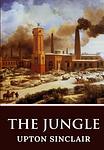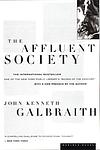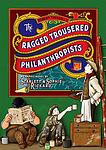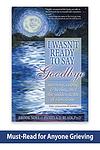The Greatest "Political, Social sciences" Books of All Time
Click to learn how this list is calculated.
This list represents a comprehensive and trusted collection of the greatest books. Developed through a specialized algorithm, it brings together 300 'best of' book lists to form a definitive guide to the world's most acclaimed books. For those interested in how these books are chosen, additional details can be found on the rankings page.
Genres
The "Political" category of books encompasses works that explore the theory, practice, and history of government and politics. These books may cover topics such as political ideologies, political systems, political institutions, political movements, and political leaders. They may also examine the relationship between politics and other areas of society, such as economics, culture, and international relations. Political books can be both informative and thought-provoking, offering readers insights into the complexities of the political world and the challenges of governing in a democratic society.
Social sciences is a broad category of books that encompasses the study of human society and social relationships. This includes disciplines such as sociology, psychology, anthropology, economics, political science, and history. Social science books aim to understand and explain human behavior, social structures, and cultural norms. They explore topics such as social inequality, power dynamics, social change, and the impact of technology on society. Social science books provide valuable insights into the complexities of human interactions and offer a deeper understanding of the world we live in.
Countries
Date Range
Reading Statistics
Click the button below to see how many of these books you've read!
Download
If you're interested in downloading this list as a CSV file for use in a spreadsheet application, you can easily do so by clicking the button below. Please note that to ensure a manageable file size and faster download, the CSV will include details for only the first 500 books.
Download-
1. The Second Sex by Simone de Beauvoir
This influential work explores the treatment and perception of women throughout history, arguing that women have been repressed and defined only in relation to men. The author presents a detailed analysis of women's roles in society, family, work, and in the creation of their own identities. She discusses the concept of 'the other' and how this has been used to suppress women, while also examining the biological, psychological, and societal impacts of this oppression. The book is a seminal text in feminist theory, challenging traditional notions of femininity and calling for equality and freedom for women.
-
2. The Jungle by Upton Sinclair
This novel exposes the harsh conditions and exploited lives of immigrants in the United States in Chicago and similar industrialized cities. The protagonist, a young Lithuanian immigrant, works in the meatpacking industry and experiences the extreme poverty, poor working conditions, and lack of social services. The narrative explores the corruption of the American meatpacking industry in the early 20th century and the hardships faced by the working class, leading to significant public outcry that contributed to the passage of the Pure Food and Drug Act.
-
3. Communist Manifesto by Karl Marx, Friedrich Engels
This influential political pamphlet advocates for the abolition of private property, the rights of the proletariat, and the eventual establishment of a classless society. The authors argue that all of history is a record of class struggle, culminating in the conflict between the bourgeoisie, who control the means of production, and the proletariat, who provide the labor. They predict that this struggle will result in a revolution, leading to a society where property and wealth are communally controlled.
-
4. Democracy in America by Alexis de Tocqueville
This influential book offers an in-depth analysis of the strengths and weaknesses of 19th century American democracy. The author, a French political thinker, provides a detailed examination of the democratic process and its impact on society, politics, and the economy. The work highlights the importance of civil society, local institutions, and the spirit of equality in ensuring the stability of democracy. It also delves into the dangers of majority tyranny, the potential for democratic despotism, and the critical role of religion and morality in sustaining a democratic nation.
-
5. A Vindication of the Rights of Woman by Mary Wollstonecraft
This influential work from the late 18th century argues passionately for the education and societal recognition of women. The author asserts that women are not naturally inferior to men, but appear to be only because they lack education. She suggests that both men and women should be treated as rational beings and imagines a social order founded on reason. The book is considered one of the earliest works of feminist philosophy.
-
6. Das Kapital by Karl Marx
This influential work is a comprehensive critique of political economy, exploring the complex nature of capitalism, its production processes, and its societal impact. The book delves into the intricacies of commodities, labor theory of value, surplus value, and exploitation, arguing that capitalism is inherently unstable and prone to periodic crises. It also posits that the capitalist system ultimately leads to the concentration of wealth in fewer hands, causing social inequality and paving the way for its own demise. The book is widely regarded as a foundational text in the development of socialist and communist ideologies.
-
7. The Affluent Society by John Kenneth Galbraith
"The Affluent Society" is a socio-economic critique that challenges the conventional wisdom of the time that economic growth leads to public wealth. The author argues that in reality, the increasing wealth of the United States has led to greater private affluence but public squalor due to inadequate investment in public goods and services. He proposes that society should strive for sustainable development rather than unlimited material advancement. The book has been influential in economic thought, particularly in the areas of public policy and consumer behavior.
-
8. The Souls of Black Folk by W. E. B. Du Bois
This seminal work is a collection of essays that explores the history and condition of African Americans at the turn of the 20th century. It delves into the issues of race, class, and the socio-economic realities faced by black people post-emancipation. The author employs a combination of history, sociology, and personal narrative to present a powerful critique of American society, highlighting the struggle for civil rights, the importance of black spirituals, and the concept of "double consciousness" - the idea of viewing oneself through the lens of a society that sees you as inferior.
-
9. On Liberty by John Stuart Mill
This influential philosophical work explores the concept of personal freedom and societal limits, arguing that individuals should have the right to act as they want, provided they do not harm others. The book elaborates on the nature and limits of the power that can be legitimately exercised by society over the individual, and champions individuality and nonconformity. It also discusses freedom of speech, asserting that all opinions should be openly expressed to prevent any single viewpoint from becoming dogma.
-
10. The Making of the English Working Class by E. P. Thompson
This book is a comprehensive historical analysis of the formation of the English working class from the late 18th century to the mid-19th century. The author meticulously examines various aspects of society including the Industrial Revolution, the rise of Methodism, and political movements, arguing that the working class was not a byproduct of economic factors alone, but was actively self-formed through struggles over issues like workers' rights and political representation. The book is widely regarded as a seminal text in social history due to its focus on the experiences and agency of ordinary people.
-
11. All the President's Men by Bob Woodward, Carl Bernstein
"All the President's Men" is a non-fiction book that details the investigative journalism conducted by two reporters who uncover the details of the Watergate scandal that led to President Nixon's resignation. The book provides a detailed account of the reporters' struggles to uncover the truth, the obstacles they faced, their persistence, and the ultimate revelation of a political scandal that shook the United States.
-
12. The Ragged Trousered Philanthropists by Robert Tressell, Peter Miles
"The Ragged Trousered Philanthropists" is a semi-autobiographical novel that explores the lives of a group of working men in the fictional town of Mugsborough, and their struggle to survive in a society marred by poverty and exploitation. The story primarily focuses on a socialist protagonist who endeavors to enlighten his fellow workers about capitalism's inherent flaws and the necessity for social change, all while battling the dire conditions of his own life. The novel is a critique of capitalism and a call for a socialist revolution.
-
13. The Death and Life of Great American Cities by Jane Jacobs
This book is a critique of 1950s urban planning policy, which it holds responsible for the decline of many city neighborhoods in the United States. The author argues that modernist urban planning rejects the city, because it rejects human beings living in a community characterized by layered complexity and seeming chaos. The book introduces groundbreaking ideas about how cities function, evolve and fail, providing a new perspective on the essentials of vibrant city life. The author also provides concrete examples of the unexpected consequences of urban renewal.
-
14. Orientalism by Edward W. Said
This book is a critical examination of Western attitudes towards the East, particularly the Middle East, and how these attitudes have shaped and continue to shape Western policies and perceptions. The author argues that the West has a long history of viewing the East as the "other," exotic and inferior, and that this view has been institutionalized through academic disciplines, literature, and media. This "Orientalism," as the author calls it, has served to justify colonialism and imperialism, and continues to influence Western attitudes and policies towards the East today.
-
15. The Mismeasure of Man by Stephen Jay Gould
The book is a critical analysis of the history of scientific racism and biological determinism, the belief that social and economic differences among human races, sexes, and classes are inheritable, inevitable, and natural. It challenges the idea that intelligence can be measured accurately and placed in a single, linear scale. The author refutes the arguments of those who support these theories, arguing that they are based on flawed methodologies, biased data, and unverifiable assumptions. Instead, he proposes that intelligence is multifaceted and cannot be quantified simplistically.
-
16. The Power Broker by Robert Caro
This book is a biography of Robert Moses, a powerful figure in New York City and state politics, who wielded immense influence over the urban development of the area in the mid-20th century. Despite never holding elected office, Moses was responsible for the creation of numerous parks, highways, bridges, and public works throughout the city and state. The book delves into the methods Moses used to achieve and maintain his power, his impact on the city, and the controversial legacy he left behind.
-
17. The Open Society by Karl Popper
This book is a critique of totalitarianism and a defense of liberal democracy. The author argues against the concept of a perfect, immutable society, instead advocating for an "open society" that allows for constant change and improvement. He criticizes theories of historical determinism and the notion of "the collective", emphasizing the importance of individual freedom and human rights. The book also examines and challenges the philosophies of Plato, Hegel, and Marx, linking their ideas to the rise of fascism and communism in the 20th century.
-
18. The Female Eunuch by Germaine Greer
This book is a seminal feminist text that explores the oppression of women in society. It critiques the traditional roles and expectations of women in the mid-20th century, arguing that societal norms and conventions force women into a secondary, submissive role, effectively castrating them. The book encourages women to reject these norms and to embrace their own sexual liberation, arguing for the need for a revolution in the way women perceive themselves and their place in society.
-
19. Economy and Society by Max Weber
"Economy and Society" is a comprehensive analysis of the relationship between economy and society, focusing on the role of social actions and their impact on economic systems. The book presents a theoretical framework for understanding how economic and social structures influence each other, including the role of bureaucracy, power, and authority. The author also introduces his famous concept of the "Protestant Ethic", linking the rise of capitalism to certain aspects of Christian beliefs. The book is considered a fundamental text in sociology and economics, providing a deep understanding of social and economic phenomena.
-
20. The Wretched of the Earth by Frantz Fanon
This book is a psychological and political analysis of the dehumanizing effects of colonization upon the individual and the nation. It provides a clear, passionate condemnation of colonialism and its legacy, arguing that violence is a necessary component of decolonization. The author also discusses the challenges that newly independent nations face, including the struggle to establish a national culture and the threat of neocolonialism.
-
21. Eichmann in Jerusalem: A Report on the Banality of Evil by Hannah Arendt
This book is a thought-provoking exploration of the trial of Adolf Eichmann, a major organizer of the Holocaust. The author argues that Eichmann was not a fanatical ideologue, but rather an ordinary individual who simply followed orders and bureaucratic procedures, highlighting the terrifying potential for evil in any system that values obedience over personal responsibility. The concept of the "banality of evil" is introduced, suggesting that horrific acts can be committed by ordinary people under certain conditions.
-
22. Discipline and Punish by Michel Foucault
This book delves into the historical evolution of the penal system, examining how Western societies have transitioned from a regime of violent, public physical punishment to a more subtle form of surveillance and control. It introduces the concept of the "panopticon," a metaphor for modern disciplinary societies that exercise power through observation and normalization rather than through overt physical coercion. The work explores the relationship between power, knowledge, and social control, arguing that disciplinary mechanisms are embedded in various institutions, such as schools, hospitals, and prisons, shaping individuals and maintaining order in society.
-
23. The American Way of Death by Jessica Mitford
This book is a critical examination of the funeral industry in the United States. The author explores the various ways in which the industry exploits the grief and vulnerability of the bereaved to upsell expensive services and merchandise, often with little regard for the actual needs or desires of the deceased or their loved ones. She also delves into the cultural and societal norms around death and burial in America, questioning their origins and the extent to which they are perpetuated by the industry for profit.
-
24. The Lost Honour of Katharina Blum by Heinrich Böll
"The Lost Honour of Katharina Blum" is a story about a young woman who becomes the target of a media smear campaign after she falls in love with a man who is suspected of being a political radical. The media's relentless invasion of her privacy and the negative portrayal of her character lead to tragic consequences, highlighting the destructive power of sensationalist journalism. The novel is also a critique of the political climate in Germany during the 1970s.
-
25. A Theory of Justice by John Rawls
This book presents a seminal work in modern political philosophy, where the author proposes a model of justice that, despite being egalitarian, respects individual rights. The author's "veil of ignorance" thought experiment, which suggests designing society from an original position where no one knows their future place in society, has been particularly influential. The author argues that this would lead to a system where each individual is assured basic liberties and socio-economic inequalities are only allowed if they benefit the least advantaged members of society.
Reading Statistics
Click the button below to see how many of these books you've read!
Download
If you're interested in downloading this list as a CSV file for use in a spreadsheet application, you can easily do so by clicking the button below. Please note that to ensure a manageable file size and faster download, the CSV will include details for only the first 500 books.
Download























